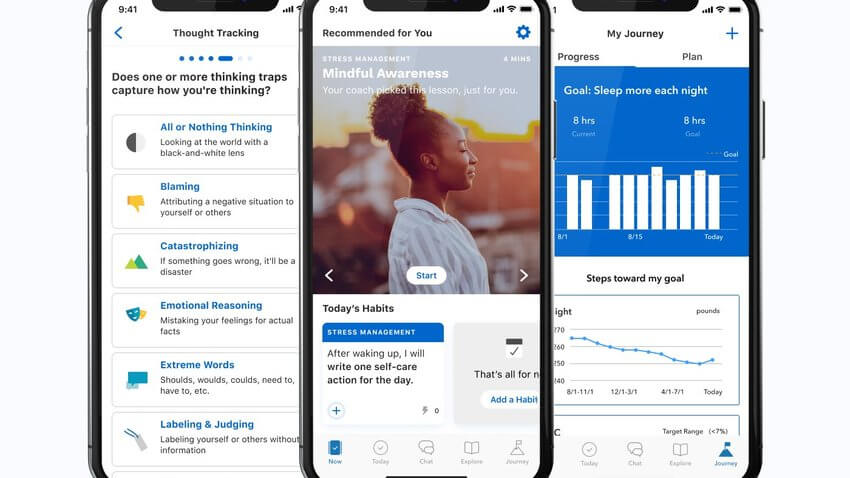
Vida Health’s virtual mental health program achieves meaningful clinical outcomes in reducing depression and anxiety
New research in the peer-reviewed Journal of Medical Internet Research (JMIR) Formative Research shows significant outcomes for those who are treated for physical and mental ailments simultaneously.
San Francisco, July 5, 2022 — New research published in JMIR Formative Research shows 3x greater weight loss among those who also reduced their depressive symptoms compared to those who focused on weight loss alone. The new paper from Vida Health adds to the growing body of peer-reviewed research showing that integrated care for body and mind is the most effective treatment for chronic conditions.
The results show:
- 75% of participants experienced a reduction in depressive symptoms
- Anxiety scores were reduced on average by 41% for those with co-occurring anxiety and depression
- Patients who reduced their depression saw a 3x greater weight loss than those who focused on weight loss alone
- Patients who experienced improvements in their depression showed consistently better weight loss outcomes than those whose depression didn’t improve
- Reductions in depression can be tied to the member’s engagement with Vida.
- Patients who engaged more with Vida saw greater improvement in their depressive symptoms
The study, Improvements in Depression Outcomes Following a Digital Cognitive Behavioral Therapy Intervention in a Polychronic Population: Retrospective Study examined the effectiveness of a therapist-supported 12-week, app-based cognitive behavioral therapy (CBT) program in improving symptoms of depression and anxiety in an adult population with a heavy burden of chronic physical disease including obesity and type 2 diabetes. The study looked at the outcomes of 831 participants. Those who participated were provided with structured lessons and tools and were offered one-on-one weekly video counseling sessions with a licensed therapist for 12 weeks and monthly sessions thereafter. The clinically validated Patient Health Questionnaire (PHQ-8) and Generalized Anxiety Disorder Scale (GAD-7) were used to assess depression and anxiety, respectively.
“Over the past several years we’ve made tremendous progress in how we treat — and how society views — mental health ailments,” said Patrick Carroll, MD, Chief Medical Officer for Vida Health. “For those suffering from anxiety and depression, virtual mental health care offers immediate access to high-quality care, often at a more affordable price than brick-and-mortar solutions. It also provides an opportunity for people who live with multiple chronic conditions — whether physical or mental — to get quality care in one place. We hope these great outcomes reinforce the need we have as a society to double down on virtual care as we try to close America’s healthcare gap.”
“Vida has changed my life,” said Debbie W., a Vida member from the largest public school pool in the U.S., Self-Insured Schools of California. “If Vida was not part of my life, I would be an emotional and physical wreck. I have bad times, but now when I get sad I have the tools to analyze and deal with the situation instead of letting every little thing push me over the depression limit … I’m not the idle, fast food-guzzling, panic-ridden person I was last year.”
Vida’s full-stack virtual healthcare solutions for chronic physical and mental health conditions serve members in all 50 states in both English and Spanish. Clients include employers like Boeing, Visa, Cisco, and eBay, along with some of the country’s largest health plans such as Centene, Humana, and Blue Cross Blue Shield plans. These meaningful outcomes are the latest positive results from Vida published in peer-reviewed publications. Vida has proven clinical outcomes across a range of conditions, including diabetes, depression, hypertension, anxiety, and weight loss. Vida is the only virtual chronic care solution in its class to guarantee outcomes through a value-based pricing structure that puts 100% of Vida’s fees at risk for both physical and mental chronic outcomes.
You might also like...


